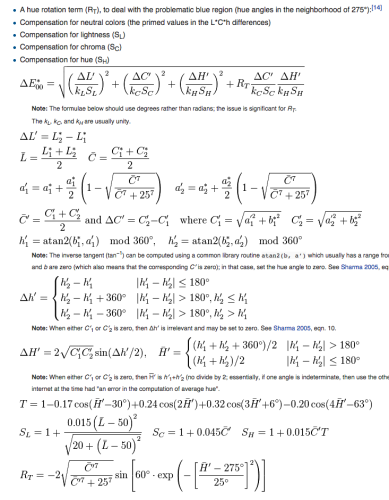CSS Colorguard – keep a watchful eye on your CSS colors.
Here is a better description from the README:
Every CSS project starts out with good intentions, but inevitably, one too many people eye-dropper colors into nooks and crannies that you never knew existed. CSS Colorguard helps you maintain the color set that you want, and warns you when colors you’ve added are too similar to ones that already exist. Naturally, it’s all configurable to your tastes.
And here is my favorite part:
Colorguard uses the CIEDE2000 algorithm to determine the similarity of each of the colors in your CSS file. This algorithm is quite complex, but is used in the broadcasting community as the best approximation of human ability to discern differences in color. RGB on the other hand, is pretty bad at representing differences in color purely based on the numerical difference of the hex values.
Luckily, someone else already implemented CIEDE2000, so I didn’t have to. Tight. Cause this thing is mathy as hell.

